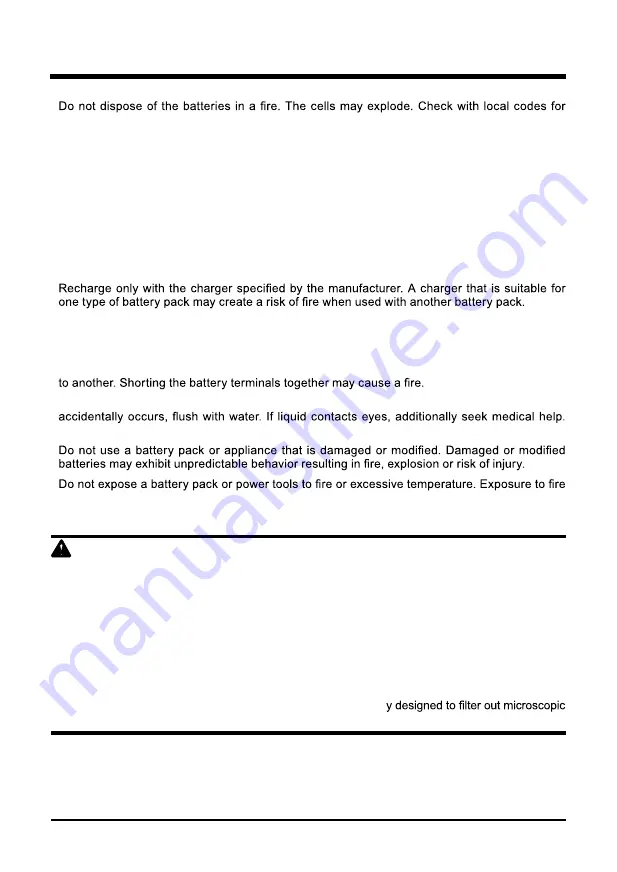
4
IMPORTANT SAFETY INSTRUCTIONS
•
possible special disposal instructions.
•
Do not open or mutilate the batteries. Released electrolyte is corrosive and may cause
damage to the eyes or skin. It may be toxic if swallowed.
•
Exercise care in handling batteries in order not to short the battery with conducting materials
such as rings, bracelets, and keys. The battery or conductor may overheat and cause burns.
•
Dress Properly – Do not wear loose clothing or jewelry. They can be caught in moving parts.
Use of rubber gloves and substantial footwear is recommended when working outdoors. Wear
protective hair covering to contain long hair.
•
Do not add unnecessary force to your power tool – It will do the job better and with less
likelihood of a risk of injury at the rate for which it was designed.
•
•
For use only with (LB60A00,
LB60A03, LB60A01,LB60A02
) battery. For use only with
(
CH60A00
) charger.
•
When battery pack is not in use, keep it away from other metal objects, like paper clips, coins,
keys, nails, screws or other small metal objects, that can make a connection from one terminal
•
Under abusive conditions, liquid may be ejected from the battery; avoid contact. If contact
Liquid ejected from the battery may cause irritation or burns.
•
•
or temperature above 265°F (130°C) may cause explosion.
W A R N I N G (PROPOSITION 65)
Some dust created by power sanding, sawing, grinding, drilling, and other construction activities
contains chemicals known to cause cancer, birth defects or other reproductive harm. Some
examples of these chemicals are:
•
Lead from lead-based paints
•
Crystalline silica from bricks and cement and other masonry products, and
•
Arsenic and chromium from chemically treated lumber.
Your risk of exposure to these chemicals varies depending on how often you do this type of
work. To reduce your exposure to these chemicals, work in a well-ventilated area, and work with
approved safety equipment, such as dust masks that are speciall
particles.
SAVE THESE INSTRUCTIONS





































